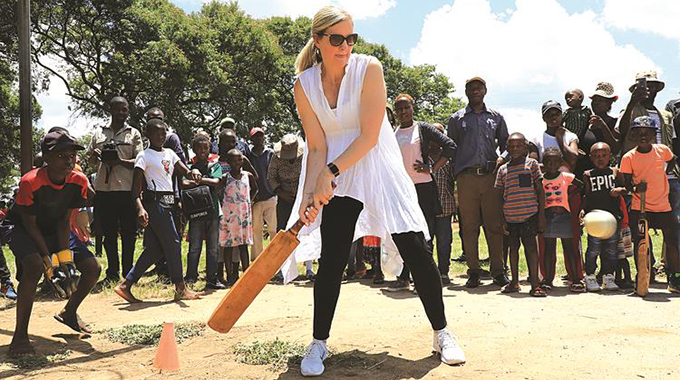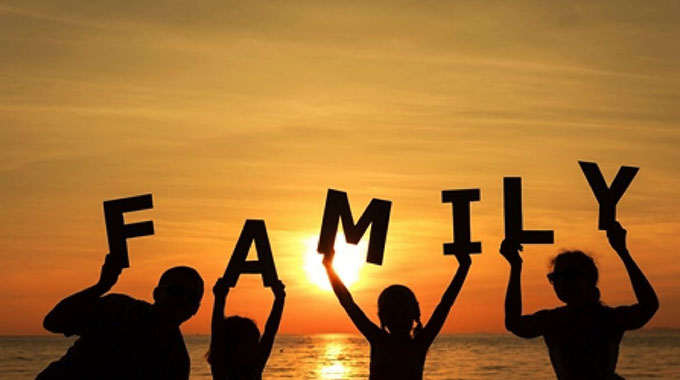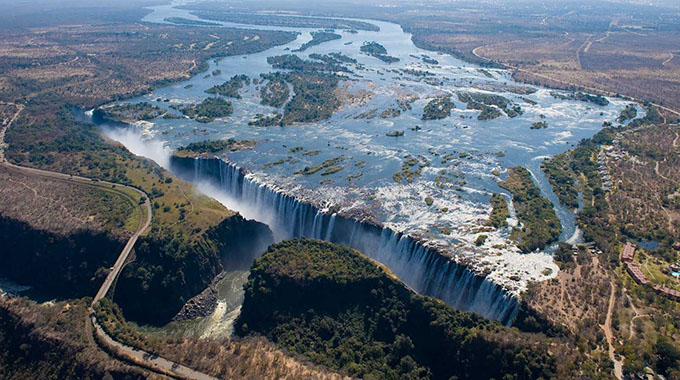Sport harnessing talent for the collective good

Elliot Ziwira Senior Writer
Zimbabwe’s independence in 1980 has seen more citizens scribbling their scripts on the global landscape across the entire spectrum of human endeavour, as spaces that colonial Rhodesia closed them out of were unlocked.
Through the Ministry of Youth, Sport, Arts and Recreation, the Government of Zimbabwe has been seized with the promotion of youth participation in socio-economic activities with the view to not only empower them, but incorporate them into the broader national discourse of development.
Policies meant to identify, nurture and support talent were put in place, and avenues into the international cosmos were created for all citizens.
Over the years, the Ministry of Youth, Sport, Arts and Recreation has been duty-bound to deliver on its obligation to the people of Zimbabwe so that each citizen’s full potential in whatever discipline of choice could be realised regardless of race, ethnicity or creed.
The ministry is headed by Honourable Kirsty Coventry. She is deputised by Honourable Tino Machakaire, and Dr Thokozile Chitepo is the Permanent Secretary.
Mandate
The Ministry of Youth, Sport, Arts and Recreation is mandated to promote youth, sport, and recreation by ensuring equitable participation, sustainable development and empowerment of all Zimbabwean citizens.
Functions
The ministry’s purposes are to: formulate and establish policy frameworks to promote the development of youth, sport, arts and recreation; institutionalise and enforce good corporate governance in youth, sport, arts and recreation programmes to attract investment and full participation of individuals and corporates and formulate and implement strategies that ensure development and growth of same.
In addition, the ministry is obligated to create an environment that supports and enhances the development of youth, sport, recreation and the diversity of cultural expressions, and promote entrepreneurial skills for their development. It is also part of its function to establish and administer a revolving youth, sport, arts and recreation fund to inspire growth of associated industries.
The ministry undertakes to capacitate youth, sport, arts and recreation clients/stakeholders through skills training to enhance high performance product and high-quality goods and services; strengthen associations so as to achieve employment creation and poverty reduction and; promote entrepreneurial skills development for youth, sport, arts and recreation.
Impact of IDI on sport, arts
Ian Smith’s 1965 Unilateral Declaration of Independence (UDI) led to the exclusion of Rhodesia from international sporting platforms. Even though there was so much talent among black people, who were excluded from elite sporting disciplines, like cricket, rugby, squash, tennis and golf open to white Rhodesians, their participation at the global arena, which could have given them a chance in the limelight, was blocked since Rhodesia was under sanctions.
Talented footballers like George Shaya who played for Dynamos and the Rhodesian national team during the 1960s and 1970s, and named the Rhodesian Soccer Star of the Year a record five times, three of which consecutively, from 1969 to 1977, could not go beyond the South African league because of the restrictions.
Artwell Mandaza, one of the greatest athletes to emerge from Zimbabwe, sprinted his way to a world-record 9,9 seconds in the 100m event at the South African Bantu Championships in Welkom in 1970, placing his time at par with Cuba’s Pablo Montes’ as joint fastest, but his feat was not recognised because of politics.
But the official best time of 10,2s in the 100m attached to the Zimbabwean made him the 11th fastest athlete in the world in the same year. When he was sent for an attachment in Germany in 1972 and qualified for the 1972 Summer Olympics in Munich, Mandaza was shot down by the politics of the day, as Rhodesia (Zimbabwe) was excluded from the jamboree.
The Literature Bureau in colonial Rhodesia, determined the nature of works to be consumed both in schools and by the general readership. Therefore, although indigenous languages like Shona, Ndebele and Tonga could be used to express liberation and freedom, they were skewed to serve the interests of the oppressor, who controlled the printing presses. As a result literary talent was quashed, thus gagging the voice of the voiceless.
Independence: Liberating,
harnessing talent
Zimbabwe’s Independence in 1980 liberated previously suppressed talents across a gamut of disciplines in sport and arts.
The year 1980 was momentous in that it gave Zimbabweans a national identity embodied in their flag which they could now proudly wave at international forums. The young nation State announced its arrival on the global amphitheatre through its field hockey team, the Golden Girls, who won gold at the1980 Summer Olympics in Moscow, Soviet Union.
In 1985 the Mickey Poole coached Warriors won the CECAFA Cup (now the CECAFA Senior Challenge Cup) when they overpowered Kenya 2-0. The Cup, a FIFA competition founded in 1926, is the oldest football tournament in Africa.
The year 1986 saw the construction of the nation’s pride — the National Sports Stadium (NSS) which opened its gates to Zimbabweans in 1987. On October 7, 1988, the stadium hosted Amnesty International’s Human Rights Now! Benefit Concert. The American crooner Bruce Springsteen and the E Street Band headlined the show. Also featuring were Oliver “Tuku” Mtukudzi, Sting and Peter Gabriel, Tracy Chapman and Youssou N’Dour.
The NSS enchanted the nation by hosting the 6th All Africa Games in 1995. In preparation for the Games, Zimbabwe earmarked funds for the construction of sporting facilities to buttress the giant stadium in hoisting the nation’s pride. Thus, Magamba Hockey Stadium (Harare), Mbare Netball Complex, Khumalo Hockey Stadium (Bulawayo) and Chitungwiza Aquatic Complex came into being.
Although the NSS has been burdened over the last 10 years due to financial challenges which has seen it falling short of international standards, the Ministry of Youth, Sport, Arts and Recreation (now the custodian) has crafted a raft of new measures, including the employment of a full-time general manager in a bid to transform the facility to match its status.
The Zimbabwe Olympic Committee (ZOC), with 30 national sport federations under its wing, has committed to have teams from all disciplines represented at the Commonwealth and Olympic Games since 1980.
From 1992 to 1994, Olympic diver, Evan Stewart competed in three consecutive Summer Olympics. Son to Anthea Stewart who won gold with the Golden Girls at the 1980 Summer Olympics in Moscow, bagged two medals at the 1994 Commonwealth Games in Victoria, British Columbia, Canada.
Kirsty Coventry (now Youth, Sport, Arts and Recreation Minister), who won seven Olympic medals, is the most decorated Olympian in Africa. She won three Olympic medals; gold, silver and bronze at the 2004 Summer Olympics in Athens, Greece; and in the 2008 Summer Olympics in Beijing, she amassed four medals: a gold and three silver. A member of the International Olympic Committee, Coventry was elected the Chairperson of the IOC Athletes’ Commission in 2018.
Another world-renowned Zimbabwean athlete is Nicholas Raymond Leige “Nick” Price who won the PGA Championship twice (in 1992 and 1994) and the Open Championship in 1994. Nick Price reached number one in the Official World Golf Ranking in the 1990s and was inducted into the World Golf Hall of Fame in 2003.
After Independence, boxing produced such luminaries like Proud “Kilimanjaro” Chinembiri, Langton “Schoolboy” Tinago, Alfonso “Mosquito” Zvenyika and lately Charles Manyuchi.
Kilimanjaro was the African Boxing Union champion between 1982 and 1987, and again between 1988 and 1990.
Zvenyika won the Commonwealth Light Flyweight Championship title in 1998 after knocking out Scottish boxer Paul Weir. He also won the Zimbabwe Super Flyweight Title and African Zone 6 Flyweight Title.
Manyuchi’s professional debut came in 2009. He won the WBC International Welterweight title against Patrick Allotey in 2014. After successfully defending his WBC crown in Lusaka against Devis Caceres, Manyuchi won the Sports Person of the Year award in 2014.
In tennis, the Black siblings, Wayne, Cara and Byron, did the nation proud in the 1990s. In February 1994, Byron Black became world number one in doubles, after winning the French Open of the same year partnering Jonathan Stark. He was a doubles finalist in three other majors; 1994 and 2001 Australian Opens and the 1996 Wimbledon Championships.
Byron and his brother Wayne, were surprise contenders in the 1998 Davis Cup quarterfinals when they won the reverse singles 3-2 against the favourites, Australia.
Zimbabwe defeated Britain on the road in 1997 and beat Chile to stay in the World Group. The duo also hosted the United States of America team led by world number 1 player, Andre Agassi.
Inroads were made in cricket, which used to be a preserve for white Rhodesians before Independence, as well. The Zimbabwe Cricket Union’s (ZCU) development programme to identify and nurture talent paid dividends as more youths from the high density suburbs came on board.
Years of struggle against institutionalised barriers culminated in the evolution of cricket in Zimbabwe as the gospel was taken to the high density suburbs. In the early 1990s Takashinga Cricket Club was established in Highfield. Tatenda Taibu is a product of the initiative to unlock spaces in cricket for the benefit of black youths.
Gifted players like Tatenda Taibu, Walter Chawaguta, George Tandi, David T Mutendere and Stephen Mangongo would later represent Zimbabwe in different capacities. Mangongo was the first black recipient of a Zimbabwe Cricket Union scholarship, and later formed an ambitious cricket club, Glen Stragglers. Like Chawaguta, he also at one point coached the national team.
History records Taibu as the youngest test captain (between May 6 and September 5, 2019) when he skippered his team against Sri Lanka.
To complement the ministry’s efforts, the corporate world joined in the quest to develop talent through such tournaments like the Dairibord Schools Rugby Festival.
In soccer, the country’s beloved sport, milestones were also set. Independence saw Zimbabwean players moving to professional and lucrative leagues in Europe. Moses Chunga moved to Belgium in 1987, where he turned out for Eendracht Aalst. On August 19, 1992, Peter Ndlovu made history by being the first African footballer to play in the English Premier League.
Benjani Mwariwari moved to Europe in 2001 to join Swiss side Grasshopper Club Zürich before moving to Auxerre a year later. He later joined English Premier League club, Portsmouth in 2006 before signing with Manchester City, Sunderland and Blackburn Rovers, respectively.
Norman Mapeza made his mark in Poland and Turkey between 1994 and 2003.
Zimbabweans are still enjoying the limelight in Europe and across the African continent with the likes of Tinotenda Kadewere, Marvellous Nakamba and Khama Billiat raising the flag high.
Karate also gained in popularity in the last 40 years through the Zimbabwe Karate Union’s dedication, which has seen athletes like Samson Muripo becoming torchbearers of the sport.
In 2009 Muripo became the first African to win a world title at the Kyokushin Karate World Cup tournament in Japan. He rewrote the scrip by being crowned world champion at the same tournament in Moscow, Russia in 2019.
Another plume in Zimbabwe’s hat came through the Warriors’ AFCON qualification for the first time in 2004 with Sunday Chidzambwa as the head coach. The national team would achieve the feat in 2008 and 2019. The Warriors has won the regional fiesta, the COSAFA Cup, a record six times.
It is worthwhile also, to take note of how Dynamos came within 90 minutes of being crowned African champions in 1998.
The Mighty Warriors qualified for the 2016 Summer Olympics in Rio, Brazil, and the Gems booked a slot at the Netball World Cup in Liverpool in 2019 where they dazzled the world with their impressive showing.
The Danhiko Paralympic Games launched in 1988, have also grown in leaps and bounds, attracting 83 teams from across the country in 2018, with participants taking part in wheelchair basketball, netball, athletics, swimming, wheelchair tennis, goal ball and soccer, thus giving a chance to Zimbabweans with disabilities to showcase their talents.
To prove that every citizen is equal, and that not even the sky is the limit, Elliot Mujaji won gold in the 100m sprint at the 2000 Summer Paralympics in Sydney, thus bringing home Zimbabwe’s first Paralympic gold medal.
The Arts scene
Independence, which Zimbabweans will be celebrating for the 40th time on April 18, 2020, revolutionised the airwaves to create space for local artistes.
Oliver “Tuku” Mtukudzi, Bhundu Boys, Thomas Mapfumo, Mokoomba, Prudence Katomeni-Mbofana, Dudu Manhenga, Patience Musa, Rute Mbangwa, Nomsa Mhlanga and Hope Masike are among scores of artistes who benefited.
Tuku became the first artiste to be accorded the national hero status in Zimbabwe.
As the only, or maybe the first musician to be declared a national hero, Tuku remains a musical icon, and, indeed, a true beacon of what it means to be Zimbabwean.
He was a unifier and remains that soothing voice that booms closer to the heart.
He fought the good fight with the Motherland’s flag draped around his gargantuan shoulders in his own lean way.
The Bundu Boys formed in 1980, was an immensely talented group comprising guitarist Rise Kagona, Biggie Tembo (singer and guitarist), bass player David Mankaba, drummer Kenny Chitsvatsva, and keyboard player Shakespeare Kangwena. The outfit was the first Zimbabwean group to play in Europe after landing at Gatwick in May 1986. They serenaded 240 000 fans over three nights in Wembley, and supported Madonna in 1987.
As the flame of Independence illuminated the airwaves in 1980, more prospects opened up for musical expression and women rose to the occasion. Traditional instruments like the mbira and ngoma were on a rebound with the likes of Beaulah Dyoko, Stella Chiweshe, Elizabeth Ncube, Francisca Muchena, Irene Chigamba, Taruwona Mushore and Chiwoniso Maraire taking mbira music to the international stage.
As Joyce Jenje Makwenda captures in “Women Musicians of Zimbabwe: A Celebration of Women’s Struggle for Voice and Artistic Expression: 1930s-2013” (2013), in the 1980s the appreciation for gospel music grew as Shuvai Wutaunashe made her mark. Busi Ncube and Rozalla Miller, the Queen of Rave, of the “Everyone is Free” fame became household names.
Township jazz made a rebound around this period and its flame continues to glow in the hands of Prudence Katomeni-Mbofana, Dudu Manhenga, Patience Musa, Rute Mbangwa, Nomsa Mhlanga and Hope Masike.
Jenje Makwenda notes how urban grooves popularised by Memory Zaranyika, Plaxedes Wenyika, Betty Makaya, Pauline Gundidza, Portia Njazi aka Tia, Tambudzayi Hwaramba and Kudzai Sevenzo, benefited from the Government’s 75 percent local content directive to local stations.
Charles Mungoshi, who died on February 16, 2019 at the age of 71, barely a month after Tuku, and laid to rest on February 19 at his rural home of Chivhu, is a hero, a national hero, nay global hero.
He is to Zimbabwean and African literature what Mtukudzi is to Afro-pop music. There is no aspect of life that could escape Mungoshi’s telescopic gaze and metaphor remains his forte.
The prolific writer was one of the first Zimbabwean writers whose works were exhibited during the first edition of the Zimbabwe International Book Fair (ZIBF) in 1983.
Other writers who contributed immensely to Zimbabwe’s literary cache are, Dambudzo Marechera, Chenjerai Hove, Musaemura Zimunya, Tsitsi Dangarembga, Shimmer Chinodya, Yvonne Vera, Paul Chidyausiku, Ignatius M. Zvarevashe, and Stanley Nyamfukudza among others.
The National Art Gallery of Zimbabwe, established in 1957, remains dedicated to the preservation of Zimbabwe’s contemporary art and visual heritage with new talent being identified and groomed every day.
Sculpture contributed over the years through such sculptors like Dominic Benhura, Brian Mteki, Henry Munyaradzi, Nicholas Mukomberanwa, Joseph Ndandarika, Bernard Matemera, John Takawira and Sylvester Mubayi who got a chance to exhibit their works at global podiums.
Such initiatives like Children’s Performing Arts Workshop (CHIPAWO) established in 1989 to provide education through traditional performing arts, changed outcomes for youths in Zimbabwe many of whom, like Danai Gurira would later make it big on the international scene.
February 21 has been set aside since 2017, as the National Youth Day, to celebrate young people’s contribution to the political and socio-economic development of the nation dating back from the days of the liberation struggle.
Since Independence in 1980, the Government of Zimbabwe has remained steadfast in its commitment to the welfare of young people and artistes across all genres.










Comments